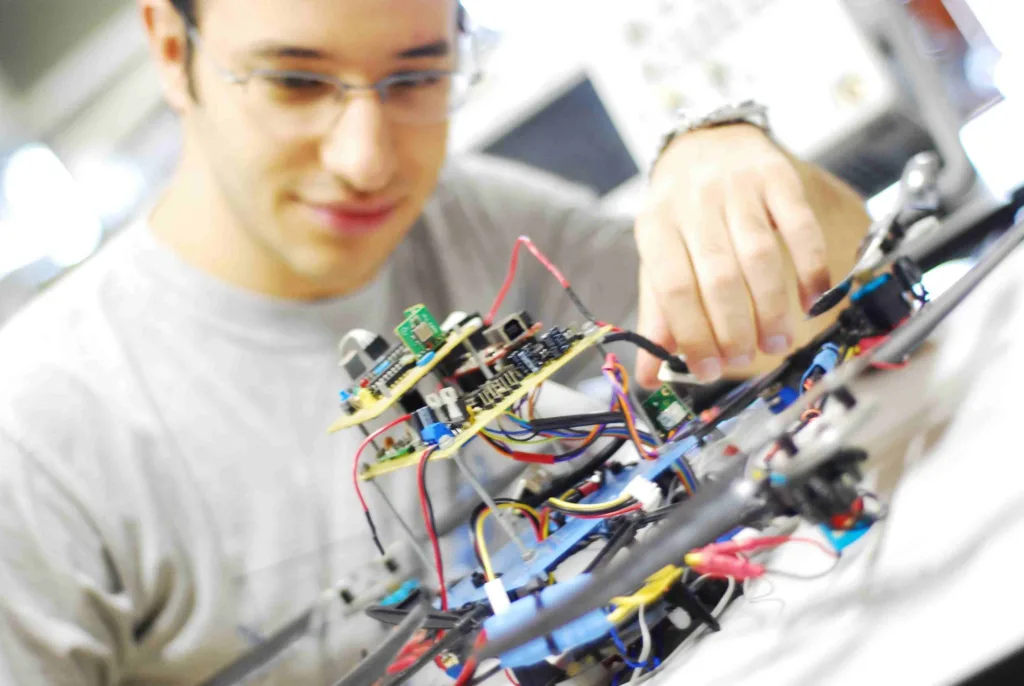Master of Technology (M Tech) programs in mechanical engineering play a crucial role in shaping the future of the field. M Tech graduates, equipped with specialized coursework, advanced research opportunities, and hands-on experience, can tackle complex challenges and drive innovation in various industries. Let’s explore the significance of M Tech in Mechanical Engineering and delve into the diverse specialisations available in this dynamic field.
Understanding M Tech Courses:
- Master of Technology (M Tech): A postgraduate degree program that provides advanced training and specialization in specific engineering areas. It provides students with in-depth knowledge, technical expertise, and practical skills to excel in their chosen field of study.
- Mechanical Engineering Programs: M Tech in Mechanical Engineering is designed to build upon the foundational principles of mechanical engineering and delve deeper into specialized areas of interest. It offers a blend of theoretical coursework, laboratory exercises, and research projects to prepare students for advanced roles in academia, industry, and research.
Role of M Tech in Mechanical Engineering:
- Advanced Specialization: M Tech programmes allow students to specialize in niche areas within mechanical engineering, such as thermal engineering, manufacturing engineering, robotics, automotive engineering, and aerospace engineering. This advanced specialization equips graduates with the specialized skills and expertise sought by industries.
- Research and Innovation: M Tech students have the opportunity to engage in cutting-edge research and innovation projects under the guidance of experienced faculty members. These research endeavours contribute to the advancement of knowledge in mechanical engineering and address real-world challenges faced by industries.
- Career Advancement: An M Tech degree enhances career prospects and opens up opportunities for leadership roles, higher salaries, and career advancement in various sectors, including manufacturing, automotive, aerospace, energy, and consulting.
- Industry Collaboration: Many M Tech programs foster collaboration with industry partners through internships, industry-sponsored projects, and guest lectures by industry professionals. This collaboration ensures that students gain practical exposure to industry practices, emerging technologies, and market trends.
Mechanical Engineering Specializations:
- Thermal Engineering: Focuses on the study of heat transfer, fluid dynamics, thermodynamics, and energy systems. Graduates may work in areas such as HVAC systems, renewable energy, power generation, and thermal management of electronic devices.
- Manufacturing Engineering: Deals with the design, optimisation, and control of manufacturing processes and systems. Graduates may pursue careers in manufacturing industries, product development, process optimisation, and quality control.
- Robotics and Automation: This involves the design, development, and implementation of robotic systems and automation technologies. Graduates may work in industries such as automotive manufacturing, aerospace, healthcare, and logistics.
- Automotive Engineering: Focuses on vehicle and automotive system design, development, and testing. Graduates may work for automotive companies, research institutions, and government agencies involved in vehicle design, safety, and performance optimisation.
- Aerospace Engineering: Deals with the design, analysis, and optimisation of aircraft, spacecraft, and related systems. Graduates may pursue careers in aerospace companies, defence organisations, and space research agencies.
Benefits of Pursuing an M.Tech. in Mechanical Engineering:
- Specialized Expertise: M Tech programs provide students with specialized expertise and technical skills in specific areas of mechanical engineering, enhancing their competitiveness in the job market.
- Research Opportunities: M Tech students have the opportunity to engage in research projects, thesis work, and collaborative research initiatives that contribute to advancements in mechanical engineering knowledge and technology.
- Industry Relevance: M Tech programs prepare graduates for careers in industry by meeting industry needs and aligning with emerging trends and technologies in mechanical engineering.
- Career Advancement: An M Tech degree opens up opportunities for career advancement, higher salaries, and leadership roles in various sectors, including manufacturing, automotive, aerospace, energy, and research.
Conclusion:
Master of Technology (M Tech) programmes in mechanical engineering offer a pathway to advanced specialisation, research opportunities, and career advancement in diverse industries. With specialised coursework, hands-on experience, and industry collaboration, M Tech graduates are poised to make significant contributions to the field of mechanical engineering and drive innovation in the years to come. By pursuing an M Tech degree and specialising in areas such as thermal engineering, manufacturing engineering, robotics, automotive engineering, or aerospace engineering, students can embark on a rewarding journey towards designing the future of mechanical engineering.



